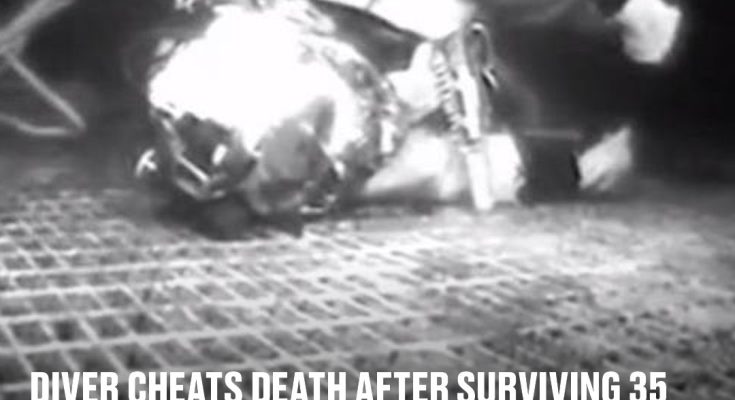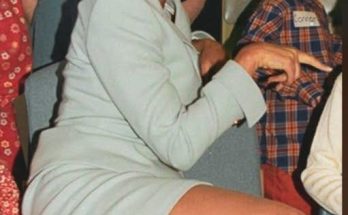Chris Lemons miraculously cheated death and survived the harrowing ordeal in the North Sea
A diver told how he somehow managed to survive for over half an hour at the bottom of the North Sea after his oxygen supply was severed.
Chris Lemons miraculously cheated death in September 2012, despite losing his breathing gas, light and source of heat while nearly 100m underwater after a freak technical malfunction.
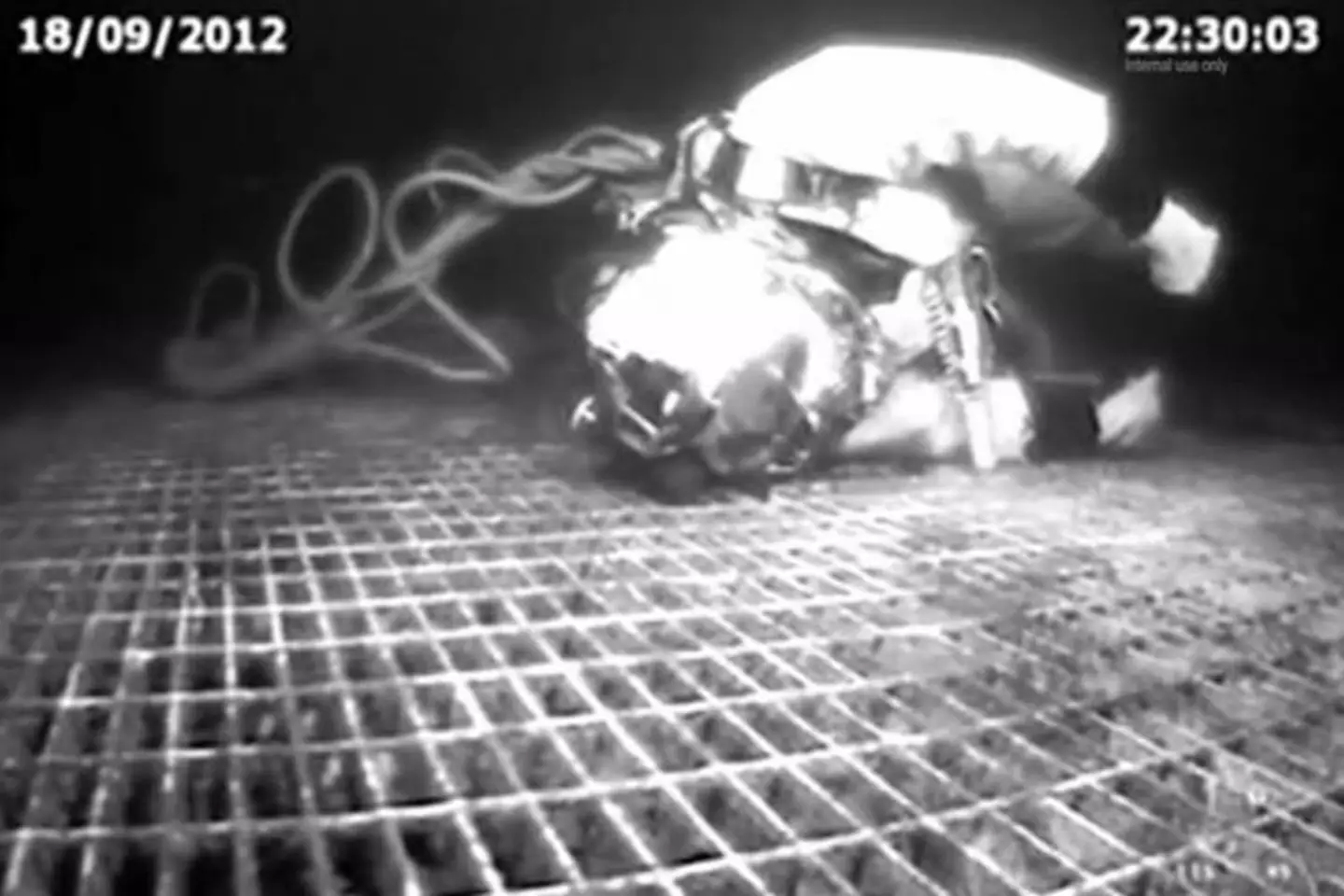
(Dogwoof/Last Breath)
Lemons’ workmates feared that they would be recovering his body rather than rescuing him after things went drastically awry while the team were repairing oil rig structures.
He was accompanied by fellow divers Dave Youasa and Duncan Allcock on the dangerous mission, which saw them head 91m below the surface in a diving bell.
They were tasked with fixing a pipe which lay on the sea bed at the Huntington Oil Field, which is situated east of Peter head in Aberdeen shire.
The trio dived down from the ship, known as the Bibby Topaz, expecting a typical day at work – but Lemons nearly ended up sleeping with the fishes.
His ordeal was later retold in the 2019 documentary film, Last Breath, which compiles real-life footage and emotional interviews from all of those involved, and is available to watch on Netflix.
“This was something serious”
While Lemons and Co got to work, their vessel on the surface was being battered by 35-knot winds – but according to the Scotsman, this was standard weather for that time of year.
But during the mission, the boat’s dynamic positioning system – which maintains its heading and position without the use of mooring lines or anchors – suffered a catastrophic failure.
As this began to unfold, Lemons was working away trying to complete the repair and he later recalled how he was first alerted to the problem when he heard an alarm ring out.
He explained that thanks to an earpiece, he and his colleagues had a ‘constant line of communication’ with their dive supervisor, Craig – who suddenly began to urge them to ‘get out’ and back to the diving bell.
“We could tell from the urgency in his voice that this wasn’t a drill, this was something serious,” he told the BBC in April 2019.
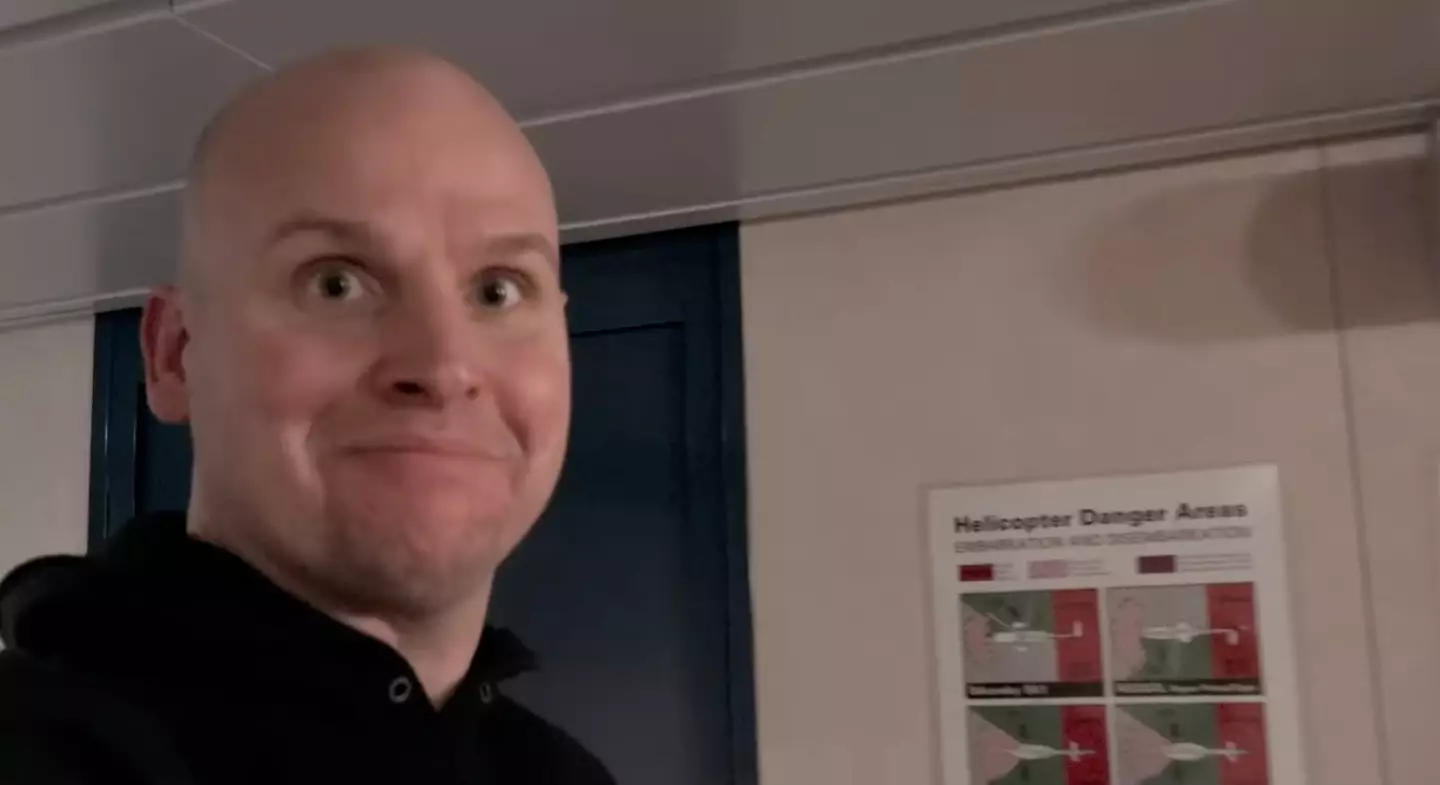
The diver explained he decided to accept his doomed fate (Dogwoof)
“There was only going to be one winner in that circumstance”
But at this point, the trio still had no idea what had gone wrong on the surface – and that the Bibby Topaz was drifting away in the rough seas due to the computer system onboard going kaput.
As a result of this movement, Lemons’ lifeline to the surface – an umbilical cable which tethered him to the diving bell and the boat – ended up being completely cut off after it got snagged on part of the metal structure he was trying to fix.
And seen as though this cable was also responsible for providing the divers with oxygen, hot water to keep their suits warm in the freezing water, light and electricity, the diver knew he was in big trouble.
“You had 8,000 tonnes of boat essentially pulling against you, and I was basically an anchor to that in the bottom,” Lemons said. “There was only going to be one winner in that circumstance.
“First, the communications cable snapped. Then the gas hose stretched to the point [that] I had nothing to breathe. I opened the supply on my back.
“This happened within about 30 seconds. Soon after that, the umbilical snapped like a shotgun going off and I fell down to the sea bed.
“Nearly 100m (approx 300ft) down, in absolute darkness, at two in the morning.”
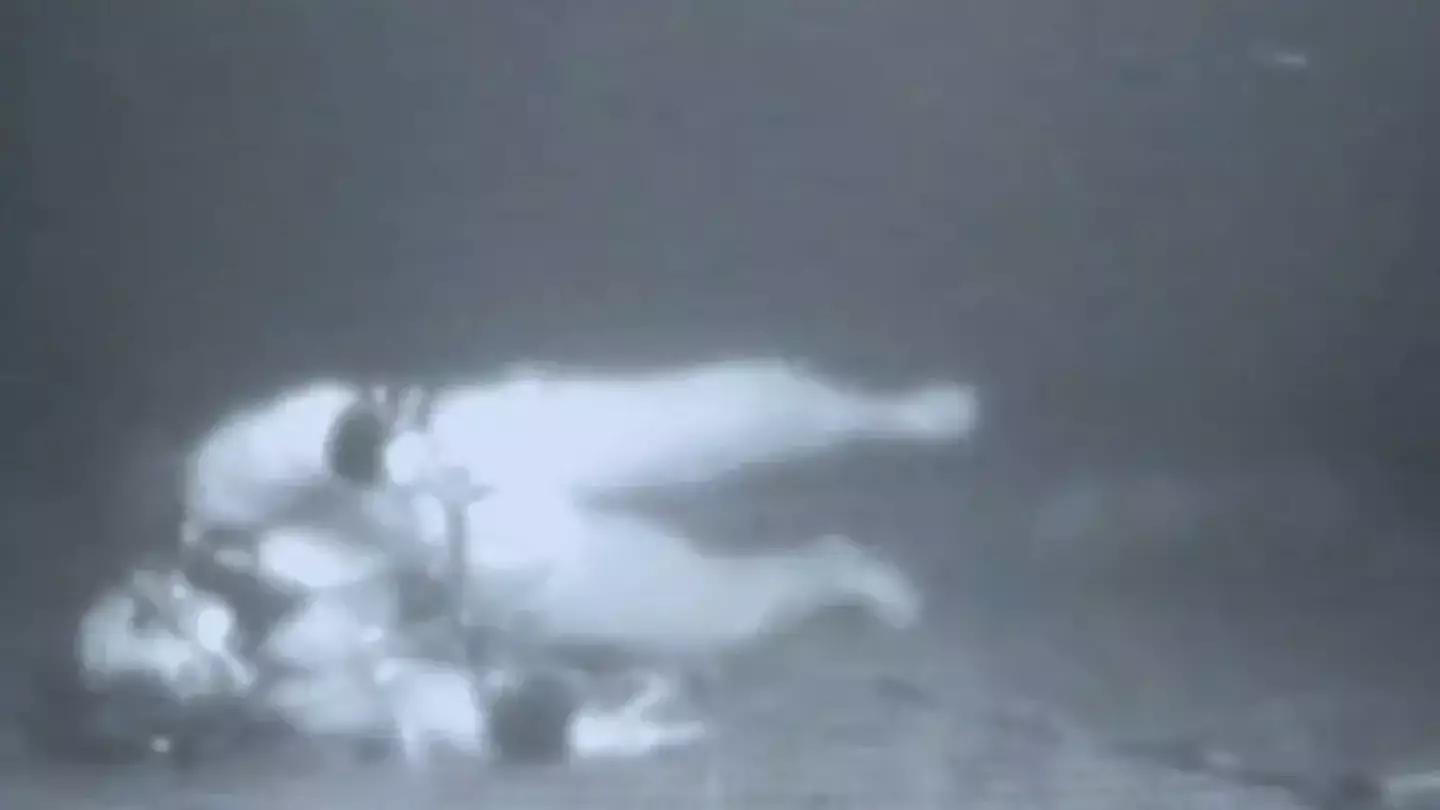
But Lemons’ heroic colleagues managed to track him down and rescue him (Dogwoof)
“I was on a countdown clock”
Lemons explained that he managed to locate the structure he had been working on, before somehow hauling himself on top of it – however, he couldn’t find the diving bell.
At the same time, he was also calculating the amount of breathing gas he had in his ‘bail-out bottle’, which is an emergency source of air.
“Because of the depth you’re working at you use [the gas] extremely quickly,” Lemons continued. “So I estimated I had about five, maybe six minutes of gas to sustain me… which it turned out wasn’t long enough.
“I realised very quickly that the end was nigh. I was on a countdown clock and it was counting very fast.”
As the seconds continued to tick by, Lemons decided to accept his doomed fate and believed their was ‘no hope of survival’.
Lemons then lost consciousness, while his panicked colleagues in the sea and on the surface were frantically trying to find him, dead or alive.
But, as we saw in the extraordinary footage, the diving crew who were trying to track him down with a remote underwater vehicle noticed that the seemingly comatose diver was still showing signs of life.
Lemons was seen waving for help as he came to – more than 35 minutes after he had began to consume his emergency supply of oxygen, which only had six-minutes of air.
Yuasa and Allcock then rushed to reach their ailing colleague, before hauling him to the diving bell and beginning life saving efforts – and thankfully, Lemons woke up.
Even though he could have suffered brain damage due to the lack of air for such a significant period of time, the diver extraordinarily emerged without any lasting effects on his health.
“I assumed it was the extreme cold of the water that slowed my functions down,” he added. “But the gas we breathe has a high concentration of oxygen which saturated my tissues and cells to allow me to survive.”
Three weeks after his brush with death, incredibly, Lemons was back in the water alongside Youasa and Allcock.
